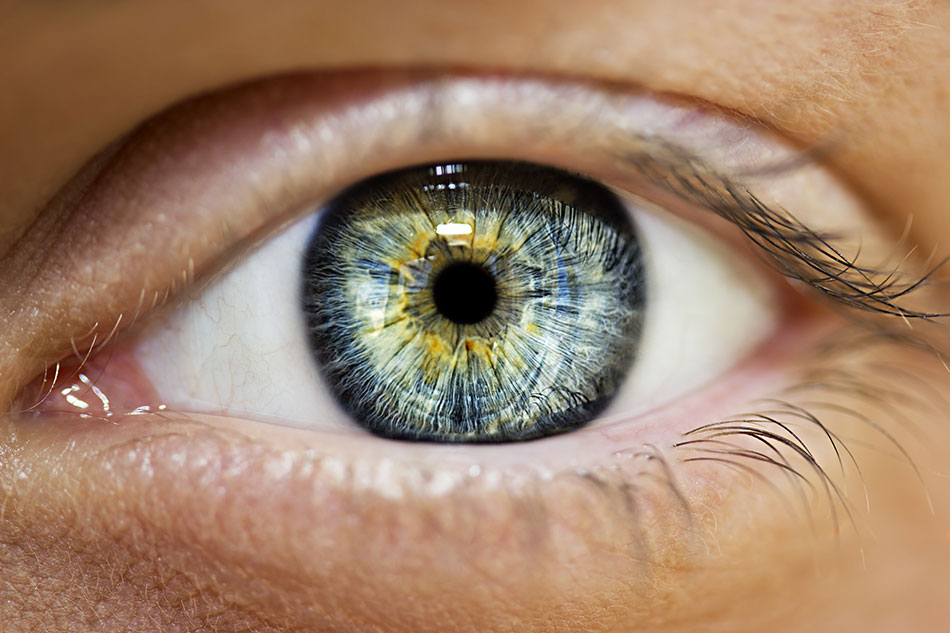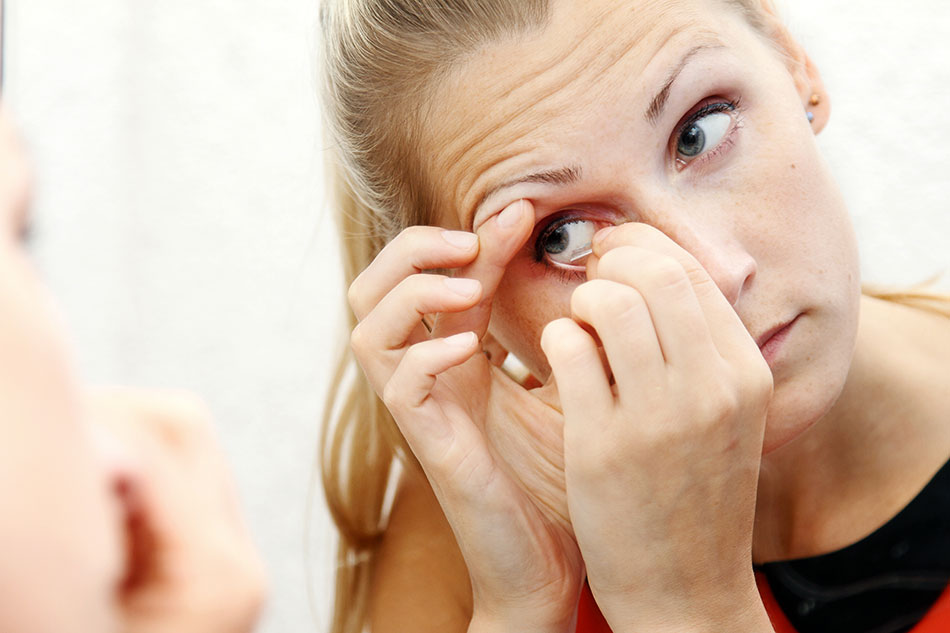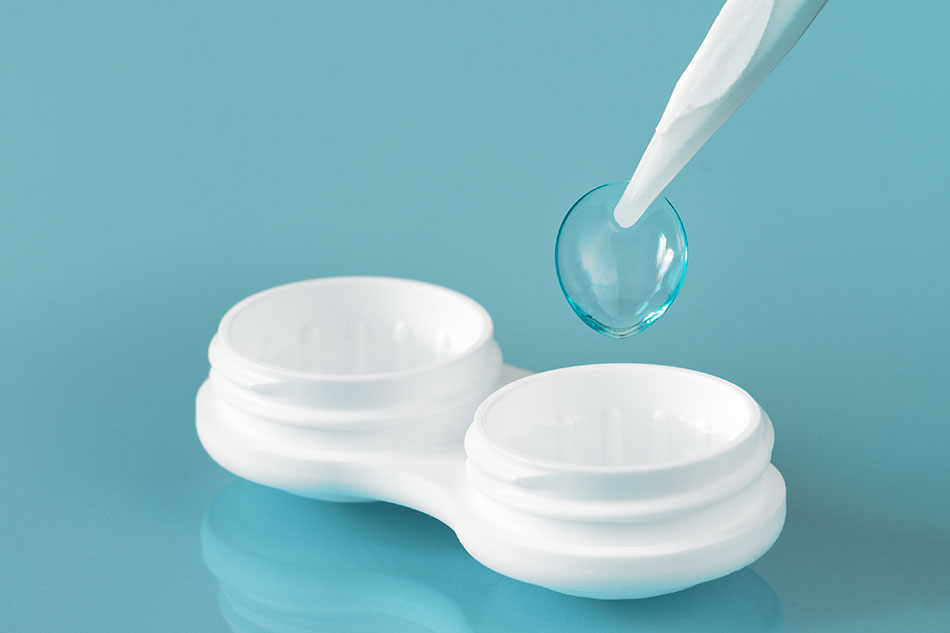Can a Contact Get Lost in Your Eye? Learn the Facts

Contact lenses are a life-changing invention that provide clear vision for people every day. So it’s not surprising that they’re a huge industry on a global level.
Despite all the benefits they offer, contacts are scary products for some people. We've all heard the urban legends of contacts getting stuck in people's eyes, or even behind them. How much truth is there to those tales? Can a contact get lost in your eye? If it can, how bad is it? Is it dangerous?
You're in luck, because in this article, we examine these questions in more detail. So you’ll be certain of what you can expect from your contact lenses.
Can Contacts Get Stuck?

This is a question that many people ask, and the answer is yes...and no. Technically, yes, it’s possible for contact lenses to become dislodged from their proper positions on the eyes. They can also lose moisture, causing them to stick to your eyes. But that’s easily fixed, as you’ll see later.
However, it is not possible for a lens to move behind the eye. No matter which way your eyes roll, upwards, downwards or sideways, it’s impossible for a contact to find its way behind the eye. Behind your eyelids is the conjunctiva. It’s a thin membrane that folds back over the eye, which blocks the contact from going very far.
It is also not possible for a contact to move into the sides of your eye. If you do get a dislodged lens, the only place it can go is behind the eyelid. But it’s still very accessible.
Is It Dangerous?
The simplest answer is no, a stuck contact lens is not dangerous, even if it's in the eye for an extended period of time. With that said, there are other things to consider.
The issue it poses is that it is very uncomfortable. A dislodged contact can cause red, itchy eyes, and even some pain or discomfort.
How to Remove a Stuck Contact

If you prefer to fix the problem yourself, that’s great. There are a few things you need to know. The first is that you should use eye drops. The drier your eye gets, the more difficult it is to remove a contact.
Eye drops reintroduce the moisture your eyes and contact lenses need to function properly. After you rewet your eyes, you should be able to take out your contact as normal.
If you have trouble getting the lens out yourself, call an eye doctor. Even though it's not dangerous, continuing your efforts to remove the contact yourself may make things more painful and difficult. If you can't contact a doctor and the problem can’t wait, consider going to the emergency room. Doctors are always on call there and can help you.
Another thing to consider is the type of contact lens you wear.
Soft Contacts
If you're wearing soft contacts, you’ll probably feel where the lens is, so it shouldn’t be too difficult to locate. Once you do find it, you should moisten your eyes. Even if you can’t find the contact, you should rewet anyway since it’ll make things easier and less uncomfortable.
A moister eye may make it easier to remove the lens. After each attempt, you should blink several times or close your eyes for a few seconds before trying again.
If this doesn't work, try this method: place your fingers on your upper and lower eyelids gently push them apart. Keep in mind that this will only work if the lens has found its way back into its proper spot, but is still difficult to take out.
If the contact is still stuck, close your eyes, look down, and massage your eyelid. This may allow you to move the contact back into its proper place so that you can remove it.
Rigid Gas Permeable Lenses
With this type of lens, there aren't too many things to try. You can first locate the contact by looking in the opposite direction of where you feel it. After you’ve found it, there are two methods to attempt.
The first is to break the seal. This is only possible if the lens is over the white of your eye. Doing this involves pushing on your eye beyond where the lens ends. This may cause the lens to stop sticking to your eye, making it easier to remove.
If this fails, the only other thing to try is using a suction cup device designed to remove lenses. You may already have this device from when you filled your prescription. If not, you might find it at a local pharmacy. Remember to always wash it before use.
Prevention

They say an ounce of prevention is worth a pound of cure. In this case, that's definitely true. As a general rule, taking care of your contacts will help prevent problems in the future.
A lot of it has to do with lifestyle, such as what you eat, what you drink and how you live. Other factors have more to do with the contacts themselves.
We could go into a lot of detail here, but basically, it comes down to taking proper care of your contacts and eyes. Keep them clean and heed any instructions you're given, and you should be fine.
Granted, it may still happen every once in a while. But if it keeps happening, you should see an eye care professional.
Also, don't worry about those worst-case scenarios and horror stories you hear about. Some of them, like contacts moving behind the eyes, aren’t even true. There are many people who leave contacts in their eyes for days, maybe even weeks at a time. Contact lenses will always come out of your eyes, one way or another.
Contact Lens Safety

A lot of people have questions about contacts. Can a contact get lost in your eye? Is it dangerous?
No, you can’t lose your contacts. And if they’re stuck, they won't do any major damage, at least not if you take care of it promptly.
Most of these myths come from stories of people who’ve gotten a contact dislodged and let it go until it became a major problem. These cases are rare and often exaggerated.
If you want to know more about contact lenses, a great place to start would be with your eye doctor. You can get factual and helpful information to put you at ease.